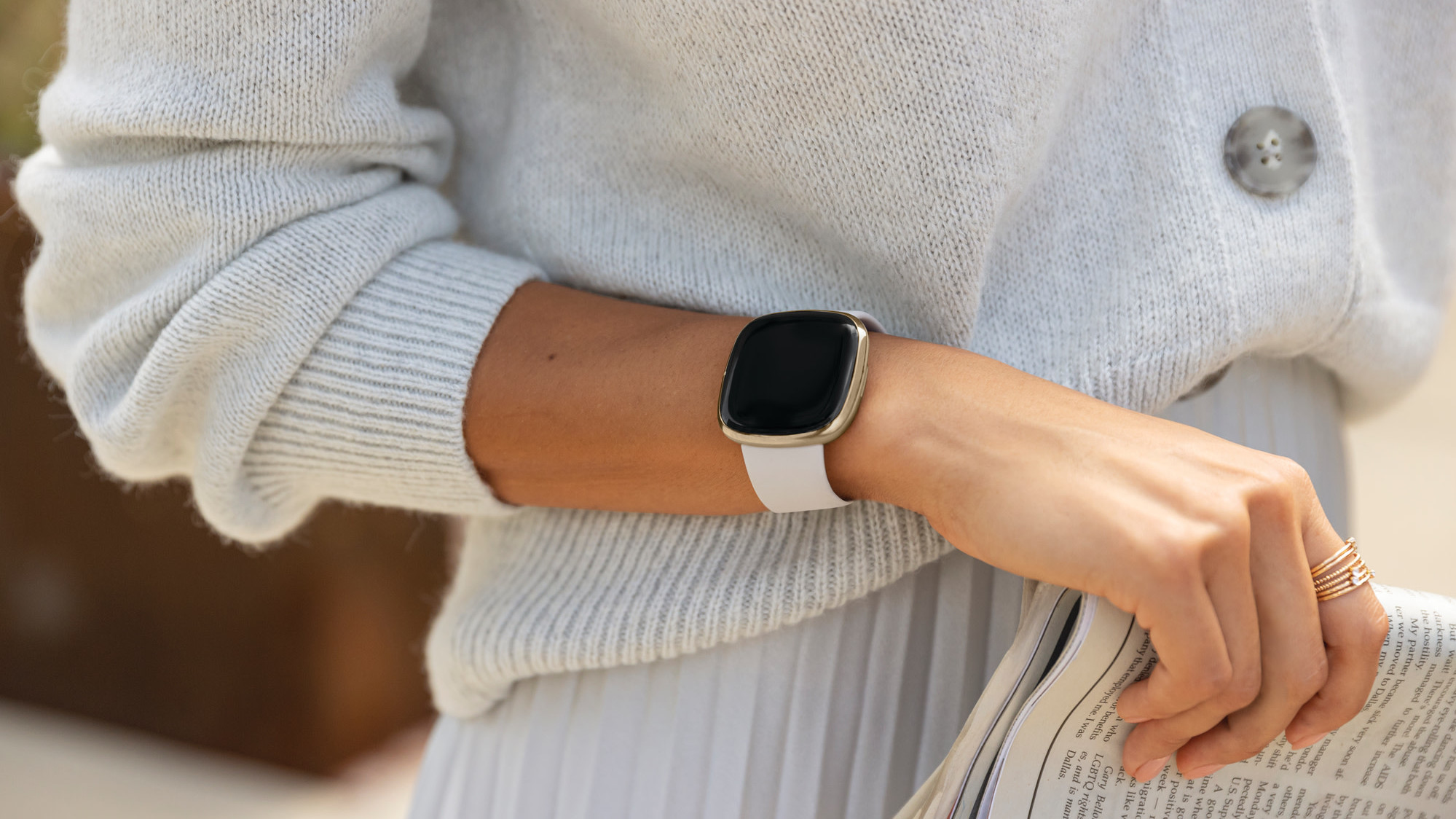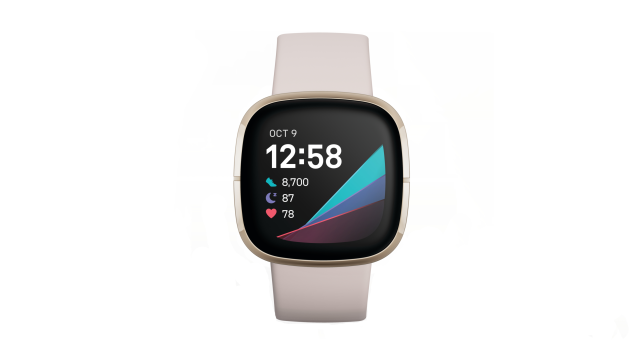Fitbit has been making smartwatches for, oh, about four years now. But despite the fact that those watches were decently affordable with pretty lengthy battery life, none of them really stood out to me as a must-buy. Fitbit’s design team needed some serious help — seriously, do we remember the Blaze? — and the watches’ health-tracking features, while promising, didn’t result in game-changing features that moved the needle the way Apple’s smartwatches did.
Well, I take it all back. After seeing a press demo of the $499 Fitbit Sense, available to preorder now and due out late September, I am genuinely impressed. I might even go so far as to say I’m actually excited to try it out. This watch is jam-packed with features that Fitbit has been building toward for years, and shows potential to be one of the most advanced health-tracking smartwatches on the market. And it actually looks good! Fitbit, I knew you had it in you.

One of the highlights in the Sense’s extensive feature set is the addition of an ECG app, which will be able to diagnose atrial fibrillation once Fitbit earns clearance from global health authorities. There is a caveat here: Of the major smartwatch makers seeking to offer an ECG app, Apple is the only one with an active FDA-cleared feature in the U.S. Samsung won FDA clearance for its new Galaxy Watch 3 but has not yet turned on its feature. It’s unclear when exactly the Sense will be able to diagnose a Fib, but when it does, you’ll take an ECG measurement by placing your thumb and forefinger on the top right and lower left edges of the watch’s stainless steel case. A positive diagnosis will point you in the direction of a health care provider for further testing.
Fortunately, the unavailable ECG app isn’t the Sense’s only marquee feature. Fitbit is emphasising stress management in its newest smartwatch during a time when we could probably all use some fresh tips on how to quell the tide of anxiety that assaults our brains on a daily (hourly?) basis.
The Sense sports an electrodermal activity sensor that measures your skin’s sweat — even when that sweat is imperceptible to you — to gauge your body’s physical response to stress. You can start an EDA scan at any time by covering the watch face with your palm, and then the watch measures your body’s response. High stress levels? You can start a quick meditation on the wrist or a longer session in the Fitbit app on your phone. You’ll also be able to enable meditation reminders to proactively calm yourself down throughout the day. In the Fitbit app, Sense users will see a stress management score, which takes into account a variety of factors, including your heart rate variability, the EDA scan app results, sleep patterns, and activity to gauge the effect stress is having on your body. A high score is good; a low score will prompt some tips to help you better manage your stress levels. I feel like the new sensor and its stress gauge could be more effective than Apple Watch’s reminders to breathe or even Fitbit’s own “Relax” feature. Do not tell me to breathe. Do not encourage me to relax. Tell me if stress is having an effect on my body and then give me some tips on how to calm down to avoid giving myself an aneurysm (other than advising me to quit Twitter, which, as we all know, will never happen).
Fitbit is also launching a new Mindfulness tile in the Fitbit app for all Fitbit users with meditations and stress-relieving sessions, and some extras if you have a Fitbit Premium subscription (which is included for 6 months with the purchase of a Sense for new Premium users).
Both the Sense and Fitbit’s new Versa 3 watch have a new multi-channel optical heart rate sensor with more light transmitters and receivers. Fitbit also created a new algorithm using data from its Fitbit Heart Study to scan your heart rate using that new sensor in the background for unusual heart rate — either too high when not exercising or too low when resting. Apple offers a similar feature in its Apple Watch. An abnormally low or high heart rate could indicate a serious underlying health issue, even without an ECG app.
The Sense also sports built-in GPS, which is a huge deal given that the only Fitbit watch with that feature was the extremely unattractive Ionic. Then there’s the new skin temperature sensor, which graphs your temperature over time and tells you when you’re running warmer or cooler than your baseline. Oh, and who could forget the new Google Assistant integration? Fitbit crammed absolutely everything it could think of into the Sense, in addition to older features like in-depth sleep analysis, while also promising 6+ days of battery life (or 3+ with the always-on display constantly in use). If Fitbit supported offline Spotify playlists, I’d say the Sense sounds absolutely perfect on paper.

But Fitbit is also working on bigger features that could make the Sense make more, uh, sense (I know, I’m sorry) in the future. The company’s on-going covid-19 study has enrolled more than 100,000 Fitbit users, whose data is being analysed to determine whether metrics like breathing rate, heart rate variability, and resting heart rate can predict the onset of covid-19. The early results are promising: Fitbit has found that its devices can early detect respiratory infection 1 to 2 days before symptoms begin. The company has submitted its early data for peer review, and anticipates being able to create an algorithm that can early detect illness for a future Fitbit feature.
I would be remiss not to mention Google’s pending acquisition of Fitbit, which may be concerning to those who value their privacy. That acquisition has not yet been finalised — and is under scrutiny in the EU — and Google, of course, promises that it will never sell your data and will be transparent about the data it does collect once Fitbit is in the fold. Do with that what you will.
When it comes to the Sense, it looks like we’ve come a long, long way from the Fitbit Blaze. Kudos to Fitbit: A company I had damn near written off after years of incremental updates and half-hearted attempts to take on Apple has now delivered what could be the best smartwatch around.
